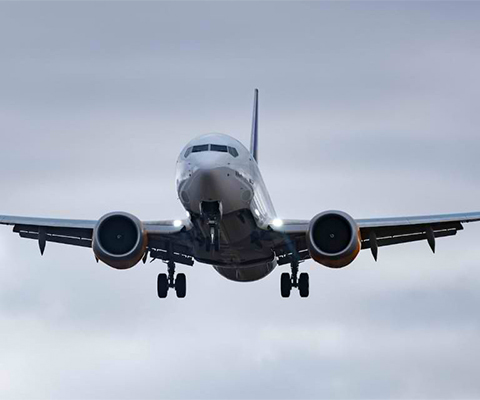Africa is a vast continent with many different cultures and time zones. If you’re traveling there, it’s important to know how to adjust to the new time zone. Otherwise, you might feel jet-lagged and out of sync with everyone else.
This blog post will discuss some tips for adjusting to a new time zone when traveling to Africa.
How do I adjust to a new time zone?
Your body’s natural rhythms are disrupted when you travel across time zones. This can lead to a condition known as jet lag, which can cause fatigue, insomnia, and other symptoms.
Here are some of the best ways to combat jet lag:
Things to Do Before Your Flight to Help Avoid Jet Lag
Do the following before your travel to help prevent jet lag and ensure your transition to a new time zone is an easy one.
Adjust your sleep schedule to match your destination’s time zone
One of the most difficult things about traveling to a new time zone is getting your body to adjust to the new sleep schedule. It can be tempting to stay up late and sleep in, but this will only make it harder to adjust once you reach your destination in Africa. Instead, start adjusting your sleeping schedule a few weeks before you travel.

Slowly shift your bedtime and wake-up time until they match the new time zone. This will help your body slowly get used to the new schedule, making it easier to adjust when you arrive.
Rest for a couple of days before traveling
When you travel to a new time zone, it can take a few days for your body to adjust to the new schedule. To help make the transition easier, it’s a good idea to rest for a day or two before traveling. This will help you avoid jet lag and get on a normal sleep schedule. Once you arrive at your destination in Africa, try to stay awake until bedtime according to the local time. This will help your body adjust more quickly to the new time zone.
Cut back on alcohol, caffeine, and sugar
When you travel to a new time zone, it can take your body a little time to adjust. As a result, you may experience jet lag, leading to fatigue and other problems. To help your body adjust more quickly, it’s important to cut back on alcohol, caffeine, and sugar.
Alcohol dehydrates the body and disrupts sleep, while caffeine can make it difficult to fall asleep. Sugar can also cause energy spikes and crashes, making it hard to get a good night’s rest. Instead, drink plenty of water and eat healthy meals to help your body adjust more easily to the new time zone.
Stay hydrated
Ensure that your body is well-hydrated. Studies have shown that a hydrated body adapts to a new sleep schedule more quickly than a dehydrated body. So, if you’re planning a trip that will involve crossing time zones, be sure to drink plenty of water in the weeks leading up to your flight. This will help your body transition to the new time zone more easily.
Things to During Your Flight to Help Avoid Jet Lag
Do the following during your travel to help prevent jet lag and ensure your transition to a new time zone is an easy one.
Stay hydrated
Hydration is an important part of fighting jet lag. It’s why you should drink plenty of water both before and during your flight. Dehydration can exacerbate the symptoms of jet lag, such as fatigue and headaches. And since airplane cabins are notoriously dry, it’s important to stay well-hydrated throughout your journey. Drinking plenty of water will also help keep your skin looking and feeling its best after a long flight.

Sleep or stay awake depending on the arrival time
You can sleep or stay awake while in flight, depending on when you’ll arrive at your destination. If you arrive in the evening, try to stay awake to sleep at night. But if you’ll arrive early in the morning, then sleeping on the flight makes sense to help ease fatigue. The goal is to align with the local timing and ensure your transition is an easy one.
Reset your watch
Another important thing to do when traveling to a new time zone is to reset your watch (and other devices). This may seem like a small thing, but it can have a big impact on how well you adjust to the new time. By resetting your watch, you are effectively resetting your body’s internal clock. This can help reduce jet lag and make it easier to adapt to the new time zone.
Additionally, resetting your watch can help you avoid feeling disoriented when you travel. By keeping track of the local time, you can more easily orient yourself in your new surroundings. So, next time you travel, be sure to reset your watch as soon as you arrive at your destination.
Do the following things after your flight to help prevent jet lag and ensure your transition to a new time zone is an easy one.
Things to After Your Flight to Help Avoid Jet Lag

Align yourself with the local time
When traveling to a new time zone, it is often necessary to adjust your sleep schedule to avoid jet lag. One way to do this is to stay awake until the local bedtime at your destination – if you arrive early, or go straight to bed if you arrive late.
Get some exercises and daylight exposure
It can be difficult to adjust to a new time zone, especially if you are jet-lagged. One way to help your body adjust more easily is to get some exercise and daylight exposure. Exercise helps regulate your body’s natural rhythms, and exposure to sunlight helps reset your body’s internal clock.
As a result, you’ll be less likely to feel sluggish and out of sorts when you arrive at your destination. So, before you book your next flight, be sure to schedule some time for a workout and a walk in the sunshine. Your body will thank you for it.
Consider medication
Finally, consider taking medication such as melatonin to promote sleep. With a little preparation, you can minimize the effects of jet lag and make the most of your travels.
Whichever approach you choose, be sure to give yourself time to adjust before any important events or activities. With a little planning, you can minimize the effects of jet lag and make travel less disruptive to your sleep schedule.
Travel With TravelMoran
If you’re preparing for a trip, or are in the middle of one, keep these tips in mind. Adjusting to a new time zone can be difficult, but you can make the process as smooth as possible and avoid jet lag altogether by following our advice. Travel Moran is here to answer all your travel questions.










